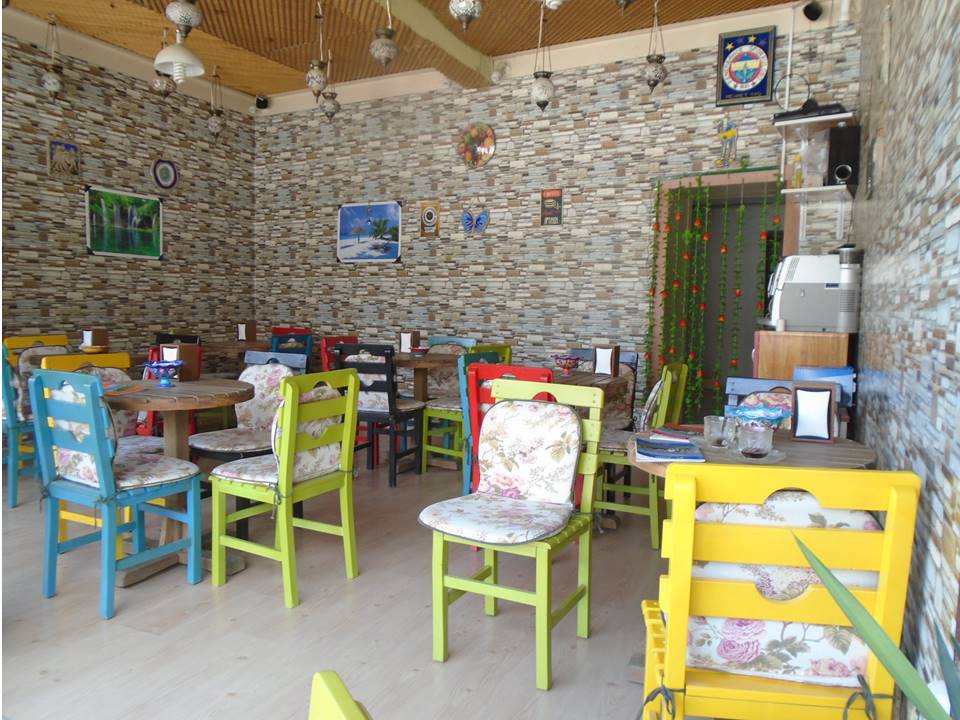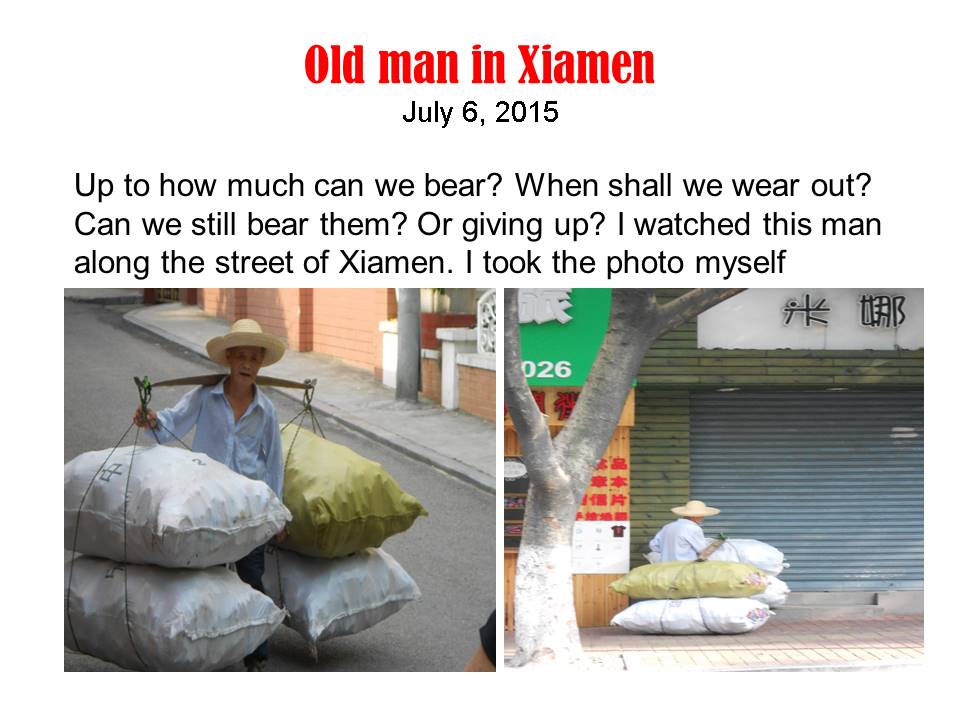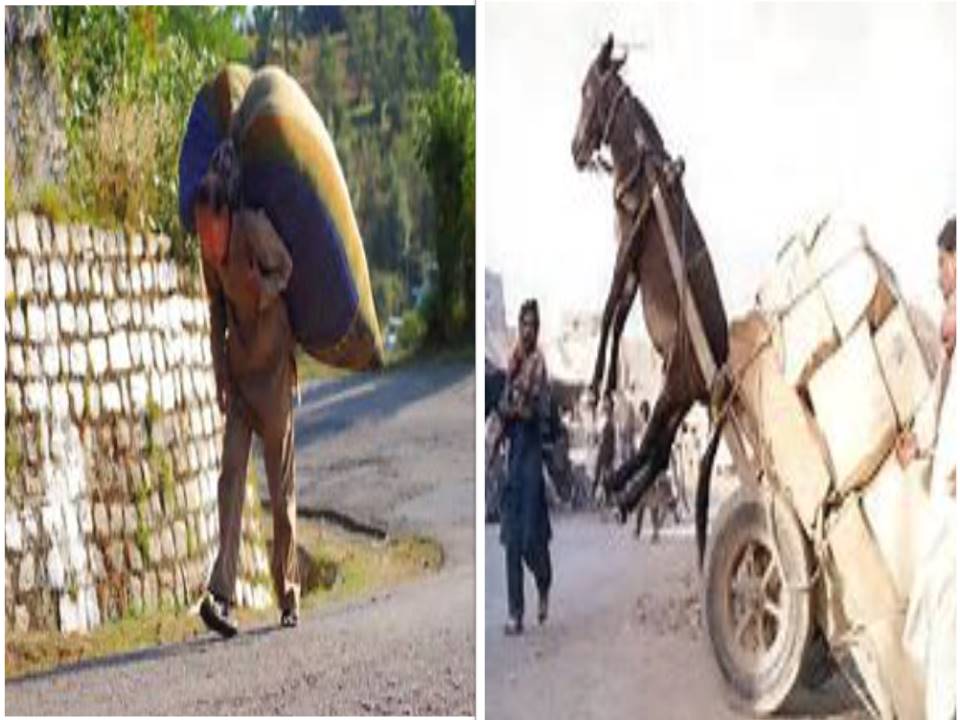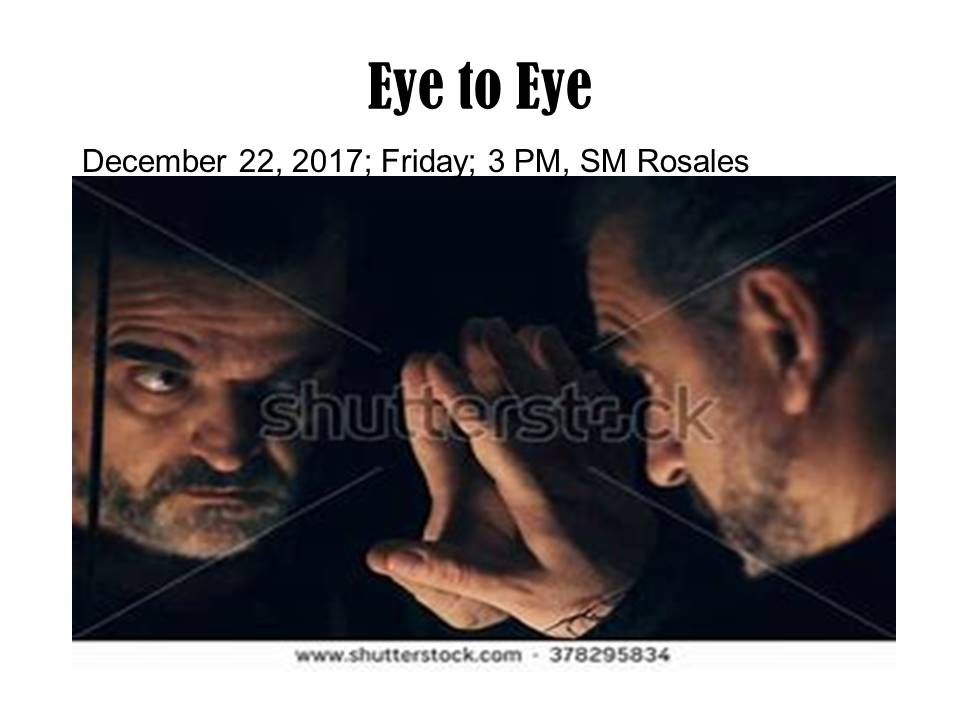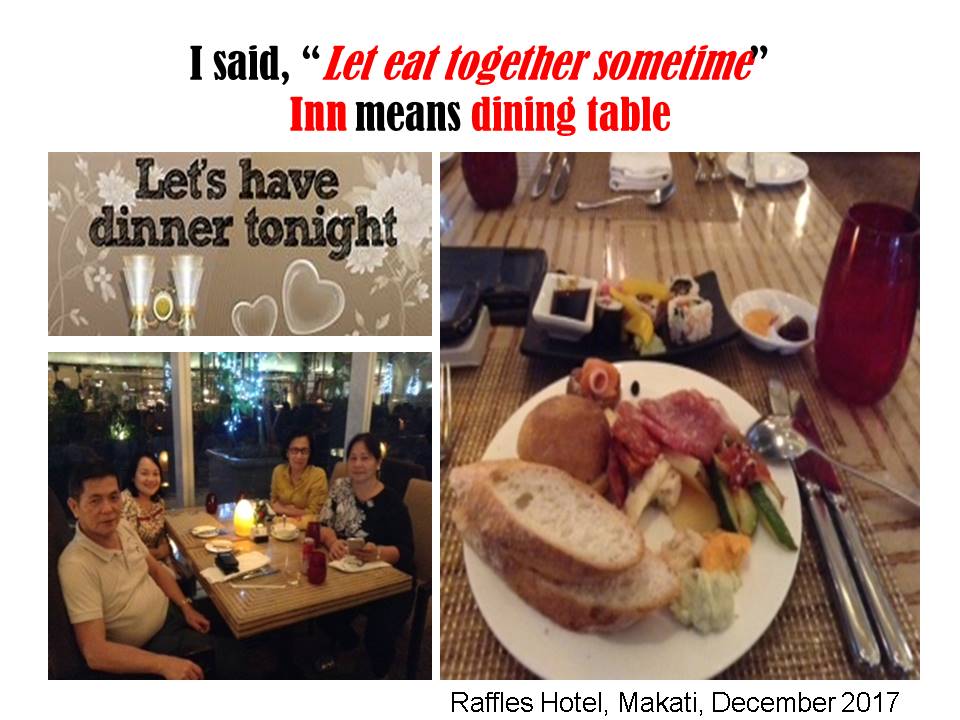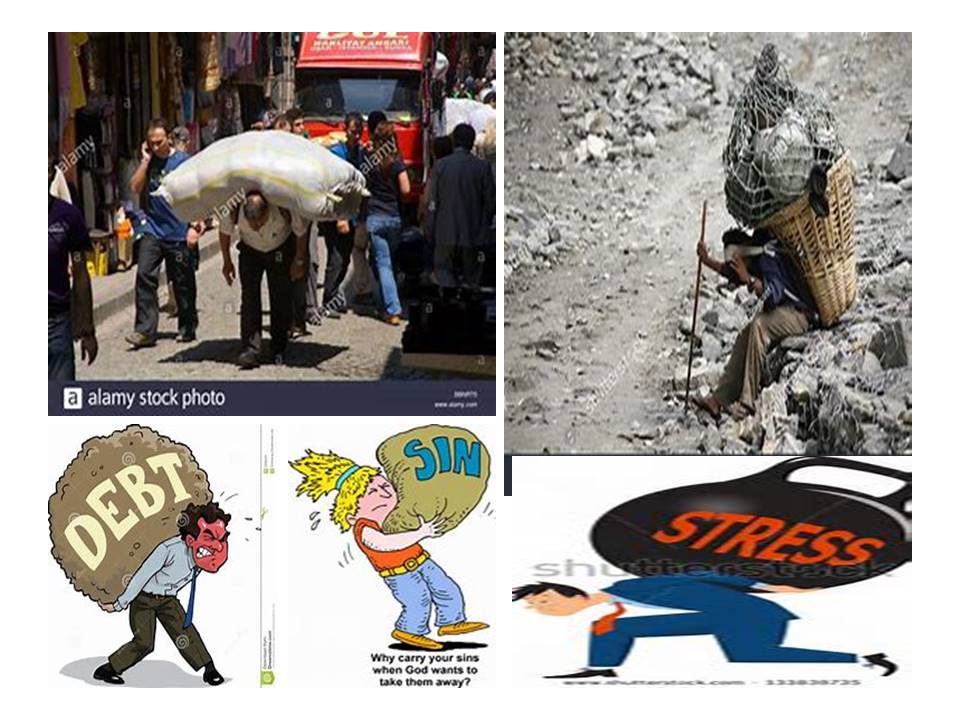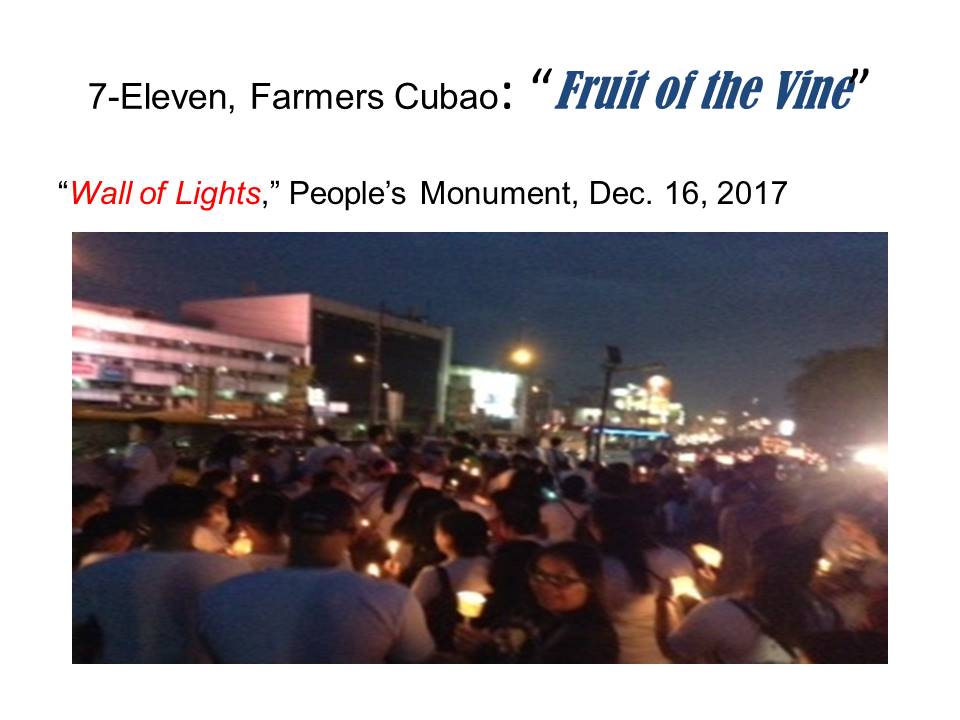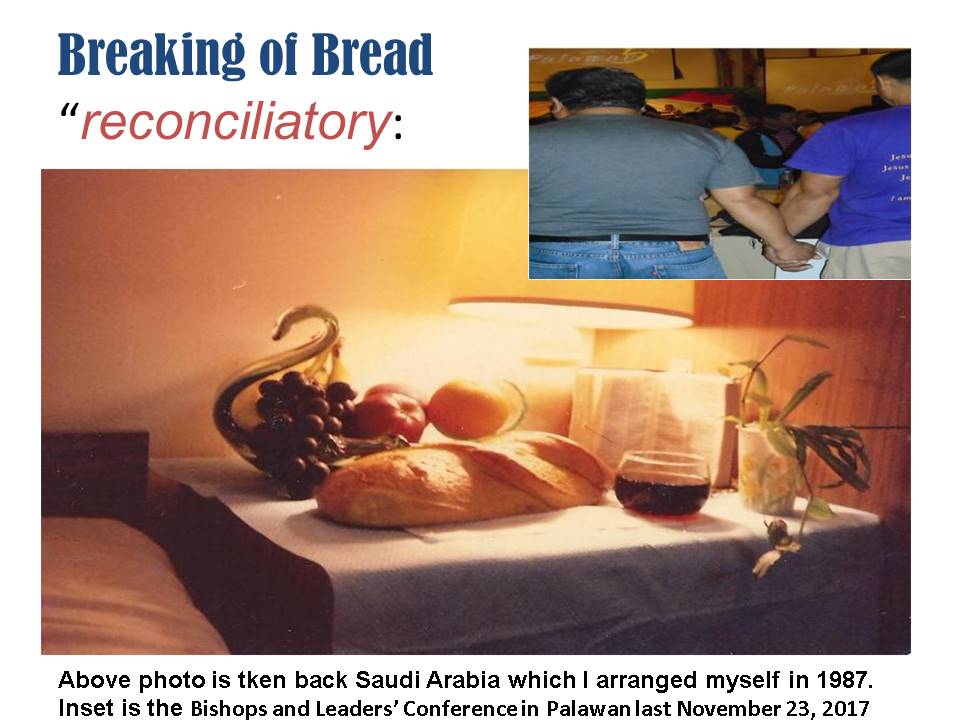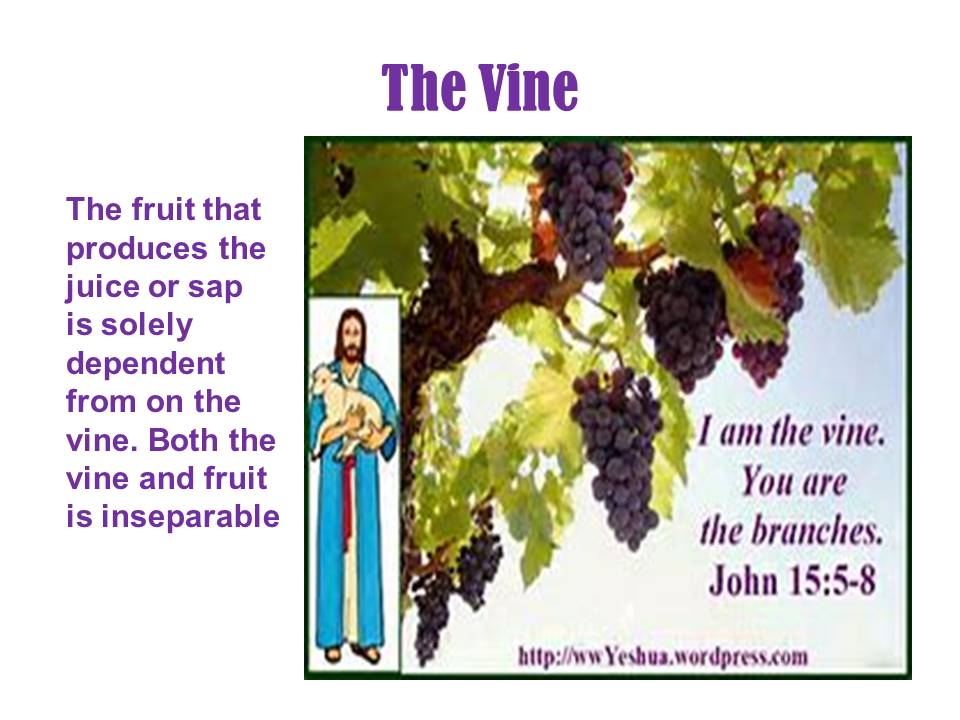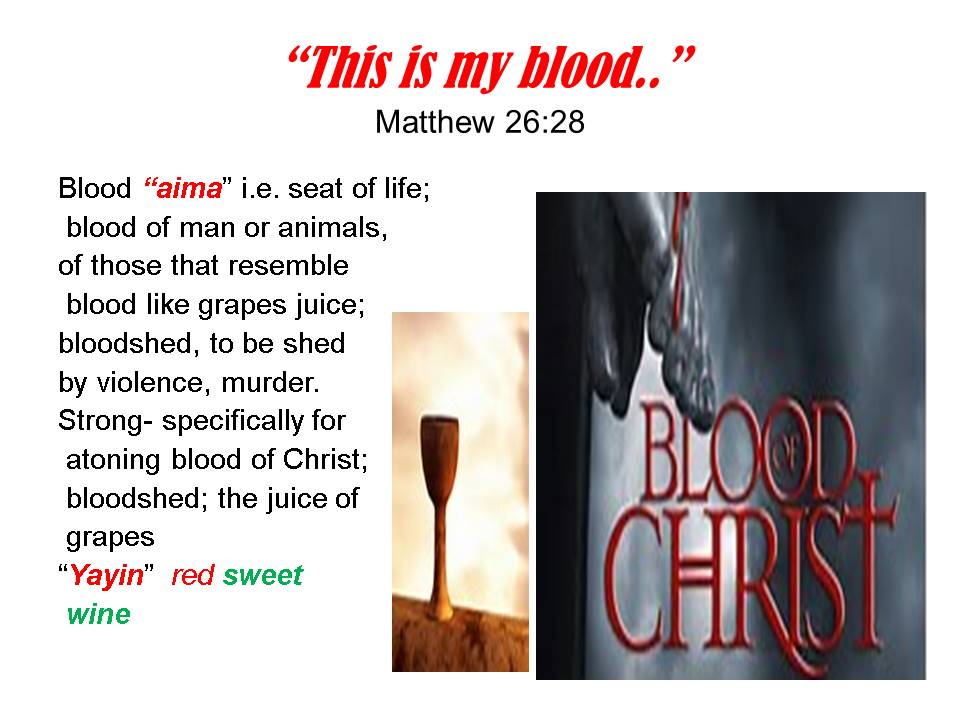The Inn
- Details
- Category: Teachings & Articles
- Published: Monday, 25 December 2017 03:39
- Hits: 4278
The Inn
By Augusto A. Kho
December 24, 2017 (Sunday) ; 8:00 A.M.
Food poisoning
On December 21, 2017, two of our church members were rushed to the hospital for food poisoning
The two were hospitalized for food poisoning. Food has been an ancient issue.
-
Adam and Eve sinned because of eating the forbidden fruit
-
Esau lost his birthright as a result and branded as fornicator (Hebrews 12:16,17 Lest there be any fornicator, or profane person, as Esau, ... Thus Esau despised his birth-right. ... Genesis 25:34). Fornicator in Greek “pornos” means “a male prostitute.”
-
The Jews disobeyed in gathering manna to eat (Exodus 16)
-
The Jews were doomed to death for eating quails (Numbers 11:31-34)
-
A prophet from Judah was eaten by lion for breaking His covenant with God to fast (1 Kings 13:1-31)
-
Christ fed the 5,000. Matthew 14:13-21; Mark 6:30-44; Luke 9:10-17; John 6:1-15
-
Jesus as the living bread. John 6:35
-
Matthew 4:4 is Christ answer to the tempter in the wilderness.
Why would Satan even uses a stone for tempt the Lord?
-
The manner of eating and not washing the hands (Mark 7:1-8). Jesus rebuked the Pharisees as hypocrites for breaking the Law of Moses because of tradition on hand-washing.
-
The danger of leavened bread.
In Old Testament time, it is called “bread of affliction” (Deuteronomy 16:3)
Leaven, or yeast, is a fungus that ferments sugars and is used to cause dough to rise. Easton's Bible commentary states 'The use of leaven was strictly forbidden in all offerings made to the Lord by fire (Lev 2:11; Lev 7:12; Lev 8:2; Num 6:15). Its secretly penetrating and diffusive power is referred to in 1Cor 5:6... It is a figure also of corruptness and of perverseness of heart and life (Mat 16:6, Mat 16:11; Mar 8:15; 1Cor 5:7, 1Cor 5:8).
-
Murmuring among Grecian Jews for serving tables reaching the ire of the elders (Acts 6:1-4). It happened right after the Feast of Pentecost.
-
Pergamos promised to be given the hidden manna if they would persevere (Rev. 2:17)
-
The new heaven and new earth (Rev. 21:1) there will be tree of life.
Rev 22:2 In the midst of the street of it, and on either side of the river, was there the tree of life, which bare twelve manner of fruits, and yielded her fruit every month: and the leaves of the tree were for the healing of the nations. If man have fallen into sin because of food, God has provided them a restoration and they are given in a pledge that they would eat the fruit of life.
No room
Luke 2:7, “And she brought forth her firstborn son, and wrapped him in swaddling clothes, and laid him in a manger; because there was no room for them in the inn. “ This is the theme of our Christmas party in the school last December 20, 2017
The Theme during that party is dubbed as “Do you have room?” The reason was quite obvious. The mere fact that the child Jesus was born in a manger as prophesied because nobody ever accorded him a decent hospitality and no ever given him a space. Room in Greek “topos” means “a place, a portion, a space.” It is the same way, the Laodicea Church treated the Lord Jesus Christ who is the Head of The Church and yet He was still standing outside the door and nobody and no one inside the Church have had yet heard him knocking there (Revelation 3:20). Again, no space or place has been provided for Him. This time we will come to the word “inn.” What do you know about inn today and before?
Sadhu in Nepal
I remember what Sadhu Selvaraj shared to us when he was commissioned by the Lord to go to Nepal. And there was no house along the way except one. When he came in, another foreign guest was there. And since it is a lodging place as well as a residential house, he came to realized that there are very limited plates available. The house owner only got two plates so far. And since water is so scarce, the plate is being cleaned up without water and he was the next one in line to use it. He survived on such a very bad order. In other words, the lodging house he gone into also provides a meal.
The Inn
Inn is an establishment for the lodging and entertaining of travellers. It is called tavern or taberna in Greek, Synonyms is lodge, public house, hotel, or hostel.
(picture1)
Greek-style taberna in Ephesus, Turkey (Photo by Peps, 2017)
The term “inn” here is not the simpler definition of a “room” or “space” or “occupancy”. “Inn” in Greek “kataluma” means “dining room” or “eating room.” That must be a Feast of the Lord” Originally from “kataluo” i.e. to dissolve, disunite (what has been joined together); to destroy
(picture2)
And I could imagine a weary traveller who have been in the road for some time, let us say days where he could not provided himself a good bath and a good food while on a long journey carrying all those heavy stuff and load. And once he found himself a nice, pleasant lodging place, he would immediately comes in and unloaded his heavy luggage, untie his shoes, and take off his jacket, shirt and pants and throw them away as fast as he could to take a wonderful shower and dry himself and get down to the soft bed and lay asleep. Then to wake up with an palate-inviting delicious meal as a comfort out from a long and tiring journey. That is exactly what kataluo means. Joseph Henry Thayer or commonly called “Thayer Bible Dictionary” define kataluo which is likened to a traveller. Thayer said :
“To a traveller is to halt on journey, lodge (the figurative expression originating in the circumstances that, put up for the night the straps and packs of the beast of burden are unbound and taken off.”
Look at the images below:
(picture3)
Above photos are taken from the internet
Luke 2:7, “And she brought forth her firstborn son, and wrapped him in swaddling clothes, and laid him in a manger; because there was no room for them in the inn. “
The term “inn” here is not the simpler definition of a “room” or “space” or “occupancy”. “Inn” in Greek “kataluma” means “dining room” or “eating room.” That must be a Feast of the Lord” Originally from “kataluo” i.e. to dissolve, disunite (what has been joined together); to destroy. To a traveller is to halt on journey, lodge (the figurative expression originating in the circumstances that, put up for the night the straps and packs of the beast of burden are unbound and taken off.”
3:30 PM/ 22 December 2017
Two hours later after the above writing, I went to SM Rosales when my eyes met one’s familiar eyes. It is the eye of the enemy. He is a Korean pastor whom I have not been talking with for the past 17 years. I simply passed by then suddenly, I turned my back heading where he was and touched his shoulder saying, “We will talk later.” Confusion marked his face, so I clarified, “We will later. I will invite you for dinner…” He nodded unbelievably. As I dashed my steps away from him, something spoke to me that says, “You can’t be bitter all throughout your life. You must learn how to forgive. Accept another as Christ accepted you.” Something heavy snapped out of me. And there was a release.
Something dawned inside of me. He made the first move. He made the first initiative. When we were yet sinners Christ died for us. He gave His son Christ (John 3:16).
(picture4)
Two hours later after receiving such revelation, I went to SM Rosales when my eyes met one’s familiar face. My eye met his. It is an eye to eye and I readily snapped back my eyes as I headed forward. It is the eye of an enemy.
(picture5)
He is a Korean pastor whom I have not been talking with for the past 17 years. I simply passed by then suddenly, I turned my back heading where he was and touched his shoulder saying, “We will talk later.” Confusion marked his face, so I clarified, “We will later. I will invite you for dinner…” He nodded unbelievably.
(picture6)
As I dashed my steps away from him, something spoke to me that says, “You can’t be bitter all throughout your life. You must learn how to forgive. Accept another as Christ accepted you.” Something heavy snapped out of me. And there was a release.
Something dawned inside of me. He made the first move. He made the first initiative. When we were yet sinners Christ died for us. He gave His son Christ (John 3:16).
(picture7)

It is evident that Christ does not occupy a residency status in the Church of Laodicea that why He was still outside the door and kept knocking. Rev.3:20, “Behold, I stand at the door, and knock: if any man hear my voice, and open the door, I will come in to him, and will sup with him, and he with me. Sup from Greekp “deipno” means “principal or chief meal: an evening meal. Thayer said originally from “deipnon” i.e. formal evening meal as Messiah’s feast.
Ephesus has been given a promise that they should persevere, they will soon to be given “eat of the tree of life,” (Rev. 2:7)
Breaking of the Bread, what is the significance then? Why we kept repeating it as “moed” or rehearsal i.e. holy convocation
(picture8)
Last Saturday, December 16 at People’s Park during the “Wall of Lights” I was looking for a grape juice as a Sacramental elements on the said occasion but I could not find one. I found only the apple juice which I planned to buy when it reminded me of what Christ said, “I will not drink the fruit of this vine again,” referring to a vine drink not from a tree. Why vine?
(picture9)
The vine
Matthew 16:29 is where Christ made mentioned of the “fruit of the vine.”
The Fruit in Greek “gennema” i.e that which has been born or begotten ; the offspring or progeny; the fruits of the earth; the produce of agriculture. Strong says it is “offspring, produce; fruit, generation (literal, figurative).”
(picture10)
Originally from the Greek “gennao” i.e. “ of men who fathered children, to engender, ; to regenerate; gender; procreate (properly of the father but by extension of the mother).”
Vine in Greek “ampelos” a vine (as coiling about a support). Originally from “amphoteros” i.e. both of the two; both the one and the other. “Amphi” i.e. “around” in plural; both.
In other words, you cannot produce the wine from the offspring or fruits that connects to the vine. In John 15:5-8, Christians as the fruit connects to the vine Christ. The fruit that produces the juice or sap is solely dependent from on the vine. Both the vine and fruit is inseparable
(picture11)
NOTES:
Wine in Communion
By John Mergy (2008), Trinity Evangelical Church
Throughout the history of the Church, it is wine that has been understood to represent the blood of the Lord in Communion. This is apparent in both Scripture (Matt. 26:29; 1 Cor. 11:21) and in Church History (see forwarded message: “wine in the confessions”). This is especially evident in Matt. 26:29 when the Lord refers to the “fruit of the vine.” The phrase “fruit of the vine” was the consecrated title ascribed to wine in Jewish culture, which distinguished it from typical fruit. This may seen in the “Mishna,” a collection of ancient Jewish religious teachings. It is here that we read that wine is to be blessed in a manner that distinguishes it from normal fruit: “How does one recite blessing for fruits? For fruits growing on a tree, one says, ‘Who created the fruit of the tree,’ Except for wine; For wine, one says, ‘…Who created the fruit of the vine.'” So, whenever the Lord said “fruit of the vine,” He meant wine and only wine.
It was around 1869 that the American church began to substitute grape juice for wine, based upon the teaching of the temperance movement (or “teetotalism”) that any consumption of alcohol was inappropriate. Thus, grape juice was marketed as “unfermented wine” and largely replaced wine in many, if not most, Protestant churches. In other words, wine was scrubbed from Communion because it was viewed as evil, in spite of Scriptural (Gen. 27:28, “Therefore God give thee of the dew of heaven, and the fatness of the earth, and plenty of corn and wine.” Ps. 104:15, “And wine (yayin i.e. fermented or banqueting) that maketh glad the heart of man, and oil to make his face to shine, and bread which strengtheneth man's heart.”) and historical testimony to the contrary.
Most Christians now agree that wine is not evil and that the teetotalers went too far in their condemnation of wine. Even so, grape juice is still used in Communion instead of wine in many churches. Should we simply accept this questionable tradition, in spite of its unbiblical roots (Mk. 7:8-9; Col. 2:20-23)? Consider the words of Doug Wilson: “Traditions are at their worst when they grow up and are simply assumed in the bones, with no examination. But sinful human beings always need accountability – and sinful human opinions and traditions are the same. Those who compare themselves with themselves are not wise (2 Cor. 10:12)” (“Reformed Is Not Enough”, p. 51).
So the question arises: Why continue the use of grape juice in Communion? It was instituted with wine; the use of wine in Communion has been the historical practice of the Church from the very beginning of the Church; and wine was replaced by grape juice for utterly unbiblical reasons. The burden of proof clearly rests not with the Reformers, but with the liturgical innovators.
There are a few objections that one might raise against moving back to wine exclusivity in Communion, and these are addressed below.
1.) We’ve always used grape juice; why change now? Answer: The passage of time does not magically make an erroneous practice suddenly acceptable. Error + 140 years = 140 years of error. In other words, substituting grape juice for wine is just as unbiblical today as it was in 1869, and the reasons for doing so remain unchanged. So when we continue the practice of the teetotalers, we are in essence agreeing with them that wine is evil – no matter how vehemently we may deny it. Thus, the Church should be diligent in separating bad traditions from good traditions, as Mr. Wilson implies above, and remove grape juice from the Lord’s Table.
2.) Grape juice and wine are similar, so why not use both? Answer: As was stated above, when Scripture speaks of the “fruit of the vine,” it means wine and only wine – not unfermented juice. The similarity between wine and grape juice may be of concern to us if wine were not available, but wine is available to us. Why should we use anything else, regardless of how similar it might be? Simply pointing out that both wine and grape juice come from grapes does not prove that they are interchangeable (because they are not), nor does it justify substituting one for the other.
3.) There is no Scriptural mandate to use wine in Communion. Answer: Neither is there an explicit Scriptural mandate (or command) to use the “fruit of the vine” in the Supper. So, following this line of reasoning, we may use whatever drink we like in Communion, for lack of a Scriptural mandate. Thus, if we’re going to argue for the exclusivity of the “fruit of the vine,” we must also argue for the exclusivity of wine. If we deny one, we cannot help but lose both. Of course we understand Scripture to teach that the Supper is to be taken with the “fruit of the vine” – which is why we use wine to the exclusion of all other alternatives.
4.) I don’t like the taste of wine, and prefer grape juice. Answer: Then drink Welch’s to your heart’s content – anywhere except at the Lord’s Table. Some people like classical, others rock; “I’m a little bit country — I’m a little bit rock n’ roll” as the song goes. We don’t take requests during the Lord’s Service, nor do we at the Lord’s Table. When we come to His Table, to which He has graciously invited us to share in the meal that He has provided, we set aside our personal tastes in order to gratefully receive His blessing, and to stand in unity with our brethren in Christ. Along with this is the obvious truth that personal preference must never be given so much weight that it is permitted to reinterpret Scripture.
5.) Wine distracts me during Communion. Answer: Any number of things about Communion could potentially be construed as a distraction, but this does not mean that we simply remove them. As Paul implies in 1 Cor. 11:33-34, where the Corinthians were certainly distracted by the wine (11:21), it is self-discipline that is needed, as opposed to a change in the Supper. Notice that Paul does not instruct them to replace wine or even to water it down, but to “wait for one another” and “if anyone is hungry, let him eat at home.” So the answer is not to change the Supper itself, but to exercise self-discipline and be changed ourselves. In the end, we must admit that the problem lies not in the elements of the Supper – but in our own hearts. Thus, if we are distracted by wine in the Supper, then it is we who need to change.
6.) Wine is evil because it contains alcohol, and should not be used in Communion. Answer: This is unbiblical thinking, which is condemned in Scripture (Mk. 7:8-9; Col. 2:20-23). We are not to set aside the teaching of God’s Word in order to humor the ill-conceived traditions of men, which require things of the Church that God Himself does not require. Thus, this line of reasoning must be decisively rejected.
7.) What about the “weaker brother” and ex-alcoholics? Answer: It is clear from Scripture that the church at Corinth contained what we would call ex-alcoholics (or “drunkards”- 1 Cor. 6:10-11), and the problem also existed in the church at Rome (Rom. 14:21). And yet, we read in 1 Cor.11 that they continued to use wine in the celebration of the Lord’s Supper, and this group included those same ex-alcoholics. Scripture does not contradict itself, therefore, there is no biblical precedent for changing what the Lord has instituted in order to accommodate the weaker brother or former “drunkard” (see para. #5 above). Paul, who wrote 1 Cor. 11 as well as Rom. 14, saw no tension between the use of wine in the Supper and honoring the conscience of a weaker brother in situations outside of the Church. For example, if an ex-alcoholic came to your home for dinner, you wouldn’t serve him a glass of Merlot with his T-bone. However, when that same ex-alcoholic comes to the Lord’s Table, he is to thankfully receive with a clear conscience what the Lord has provided (see also 1 Cor. 10:27-33).




